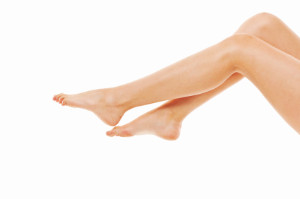
 Ingrown toenails are classified as the growth of the nails into the sides of the skin, resulting in symptoms of pain and irritation. Typically, surgery is considered as an option in helping to correct ingrown toenails, but the following at-home DIY procedure can help. The first step involves soaking your feet in warm water with baking soda and salt. Use a cotton ball soaked in raw honey and a garlic clove to apply space between the end of the nail and skin. The mixture has antiseptic properties and will help with the separation of the ingrown toenail. Do this for at least 15 days, then gradually work toward separating the toenail from the skin.
Ingrown toenails are classified as the growth of the nails into the sides of the skin, resulting in symptoms of pain and irritation. Typically, surgery is considered as an option in helping to correct ingrown toenails, but the following at-home DIY procedure can help. The first step involves soaking your feet in warm water with baking soda and salt. Use a cotton ball soaked in raw honey and a garlic clove to apply space between the end of the nail and skin. The mixture has antiseptic properties and will help with the separation of the ingrown toenail. Do this for at least 15 days, then gradually work toward separating the toenail from the skin.
Ingrown toenails can become painful if they are not treated properly. For more information about ingrown toenails, contact Dr. Sybil J. Fisher of Texas. Our doctor can provide the care you need to keep you pain-free and on your feet.
Ingrown Toenails
Ingrown toenails occur when a toenail grows sideways into the bed of the nail, causing pain, swelling, and possibly infection.
Causes
Prevention
Because ingrown toenails are not something found outside of shoe-wearing cultures, going barefoot as often as possible will decrease the likeliness of developing ingrown toenails. Wearing proper fitting shoes and using proper cutting techniques will also help decrease your risk of developing ingrown toenails.
Treatment
Ingrown toenails are a very treatable foot condition. In minor cases, soaking the affected area in salt or antibacterial soaps will not only help with the ingrown nail itself, but also help prevent any infections from occurring. In more severe cases, surgery is an option. In either case, speaking to your podiatrist about this condition will help you get a better understanding of specific treatment options that are right for you.
If you have any questions please feel free to contact one of our offices located in Houston and Sugar Land, TX . We offer the newest diagnostic and treatment technologies for all your foot and ankle needs.
Copyright © 2016 S.J. Fisher DPM | Site Map | Design by: Podiatry Content Connection